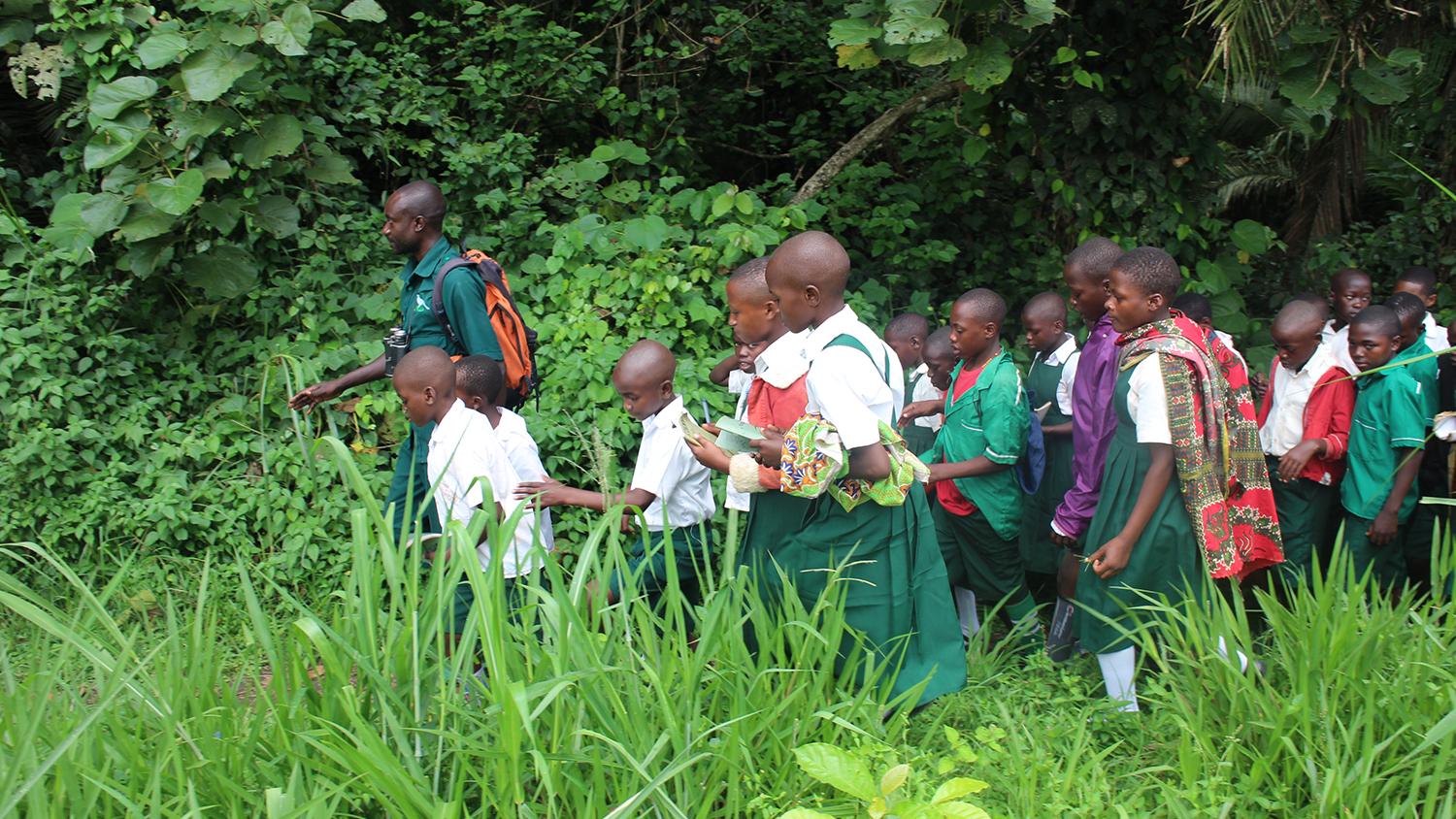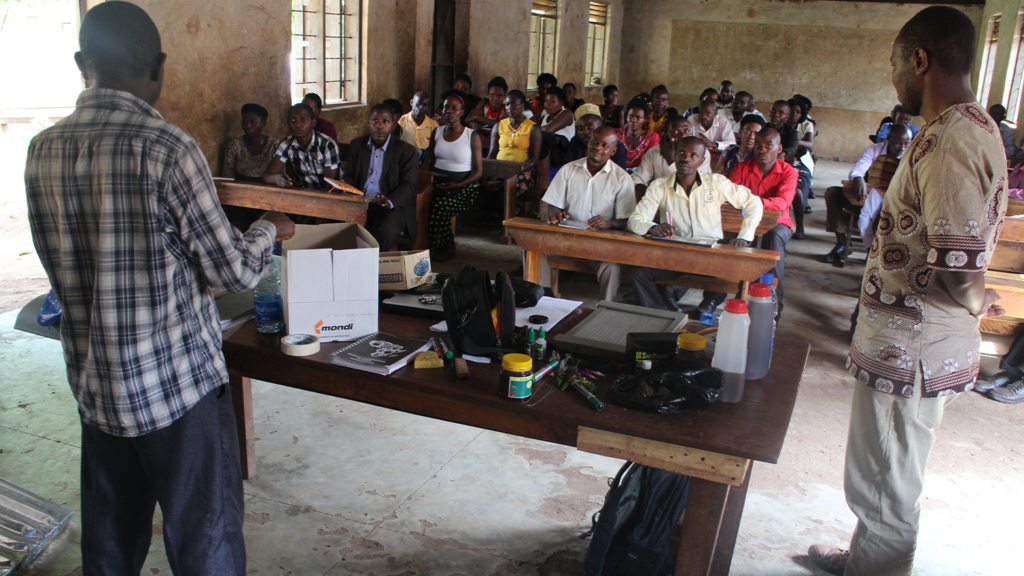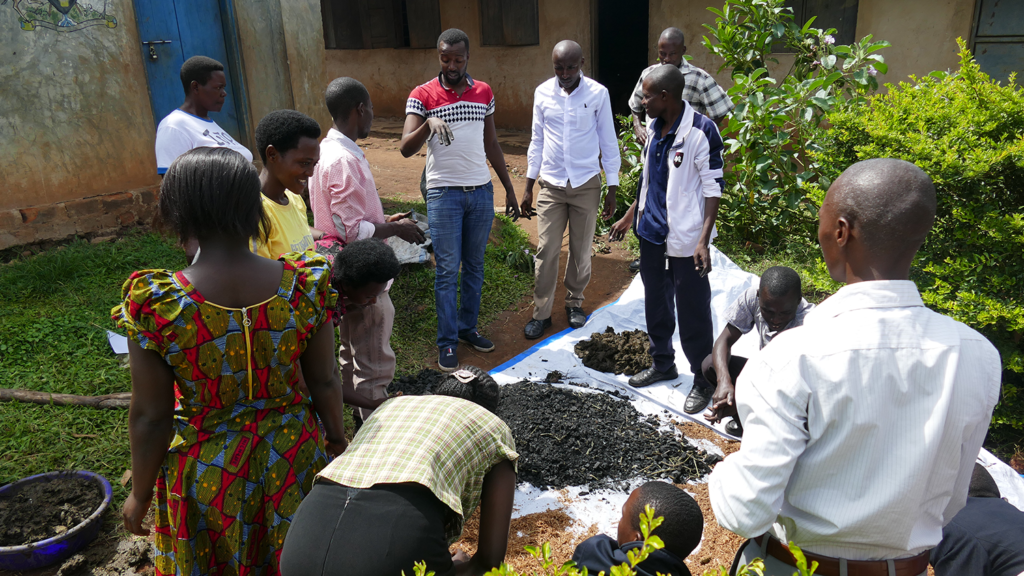Study Co-authored by Alumni Distinguished Graduate Professor Sarah Carrier, Doctoral Candidate Aimee Fraulo Highlights Teachers’ Influence in Development of Sustainable Practices in Uganda

Teacher training programs can influence students, as well as their families and communities, to adopt sustainable behaviors to drive community-based conservation initiatives, according to a recent study co-authored by NC State College of Education Alumni Distinguished Graduate Professor Sarah Carrier and doctoral candidate Aimee Fraulo.
“Can Teacher-centered Community-based Conservation Programs Influence Student Household Sustainable Behaviors Near a Biodiversity Hotspot?” examined the UNITE for the Environment teacher training program in Kibale National Park in Uganda.
The program trains teachers to work with students to encourage novel, sustainable ways to conduct existing practices, such as farming or cooking. These changes in practice can reduce dependence on natural resources, thereby reducing habitat encroachment and loss, which are key threats to chimpanzees and other species found in the Kibale National Park region.
The study, which was a partnership between the North Carolina Zoo, Cleveland Metroparks Zoo, Disney’s Animal Kingdom® and NC State, aimed to expand the reach of community-based interventions from 120 teachers to more than 5,000 students that they work with and, ultimately, into the broader community.
The research team surveyed households connected with the 12 schools that work with UNITE about sustainable practices the program has focused on over the past five years. Results showed UNITE households, particularly those where students resided, were more likely to use practices that contribute to a healthy environment, and such practices are important for both for their livelihood and for the environment.
“Our data revealed the influence of teachers on not only their students, but that also translates to families’ sustainability practices. By sharing sustainable practices with teachers, such practices have potential to become part of a community’s cultural norms,” Carrier said.
“These inspiring teachers are not only encouraging students, but also their families, to think about their environment and take more sustainable actions every day. We already knew teachers were important, now we know they’re contributing to conservation, too,” a spokesperson for Disney’s Animal Kingdom said.

The study found the teacher-centered sustainable livelihood program led by UNITE resulted in consistently higher engagement of families in about a dozen sustainable activities, including the use of a fuel-efficient stove, waste separation, tree planting, use of a kitchen garden, banana growing and beekeeping.
Although wealth played a role in the extent to which families participated in seven of UNITE’s 13 sustainable activities—with wealthier families being more likely to do activities like install a fuel-efficient stove or practice beekeeping—the age of a student taught by a UNITE educator did not impact their likelihood to adopt sustainable practices.
This demonstrates that teacher-centered programs do not need to focus on educators at secondary schools and can be successfully implemented at an elementary level, researchers said.
As a science educator with a focus on elementary education, Carrier said there is a wealth of research from the past 25 years that supports the importance of focusing on young learners.
“It’s critical that we introduce science content and science practices early and continue to build student learning throughout their formal and informal education experiences. The impact on families revealed in this study also reminds us that it’s never too late to learn,” she said.

“All teachers have the power to make change and be important influences in their students’ lives and communities,” said Fraulo, a student in the Ph.D. in Teacher Education and Learning Sciences Elementary Education in Mathematics and Science (EEMS) doctoral program. “I think this finding may address one of the barriers to people not adopting this kind of school-based model, which is the thinking that this kind of outcome is only possible with a select group of students.”
Carrier and Fraulo said the impact of the UNITE program translates to similar models that address environmental challenges here in North Carolina as well as in other biodiversity hotspots around the world.
“Many of the most threatened global biodiversity hotspots are also areas where the local communities have the fewest resources. UNITE is a great model to demonstrate how much can be done to support sustainable development in these areas if we harness the widespread influence and impact teachers have in their community. These programs do not require a lot of inputs, are accessible to even the most remote communities, and have important and positive ecological outcomes,” Fraulo said.
- Categories:


